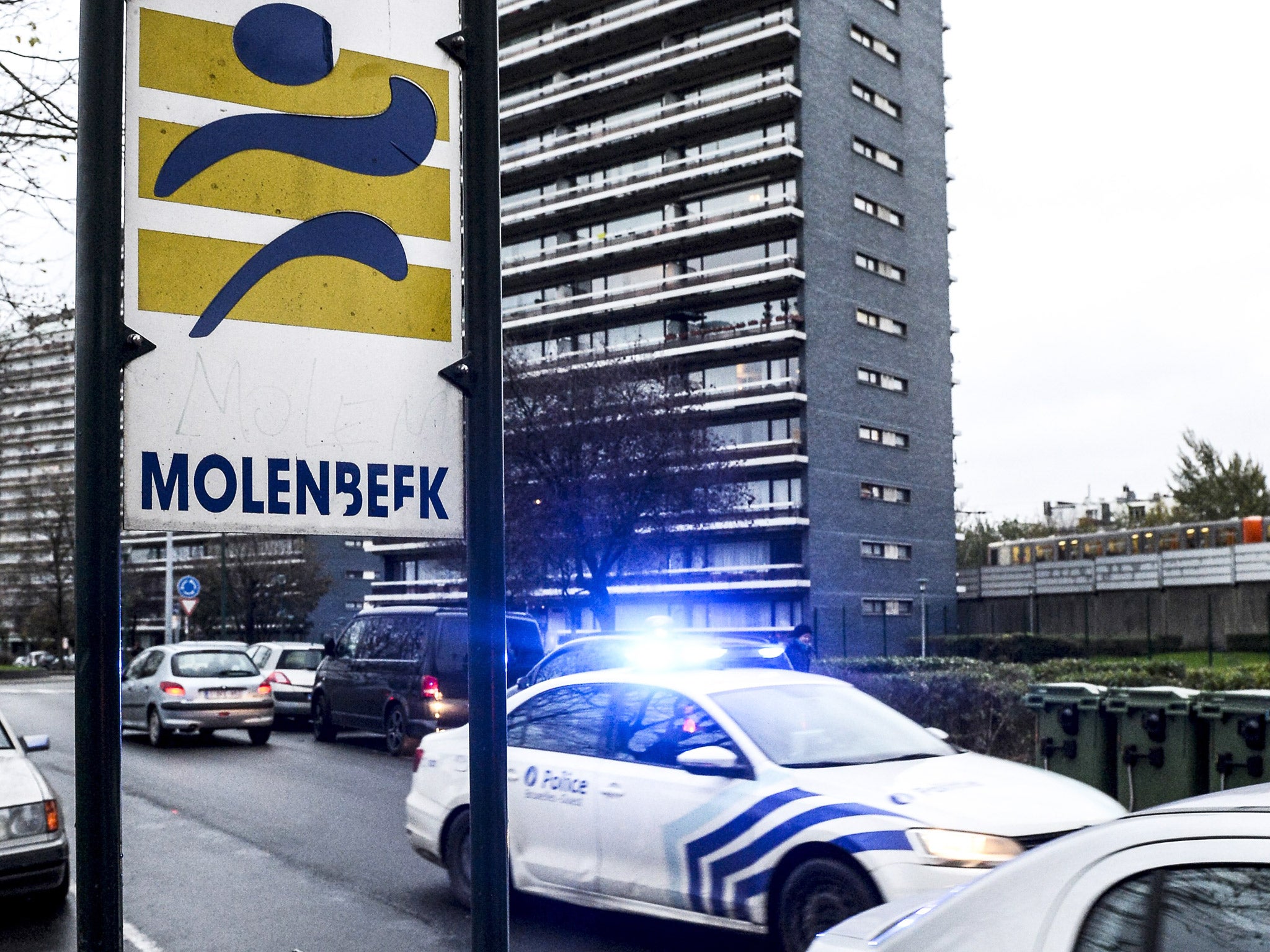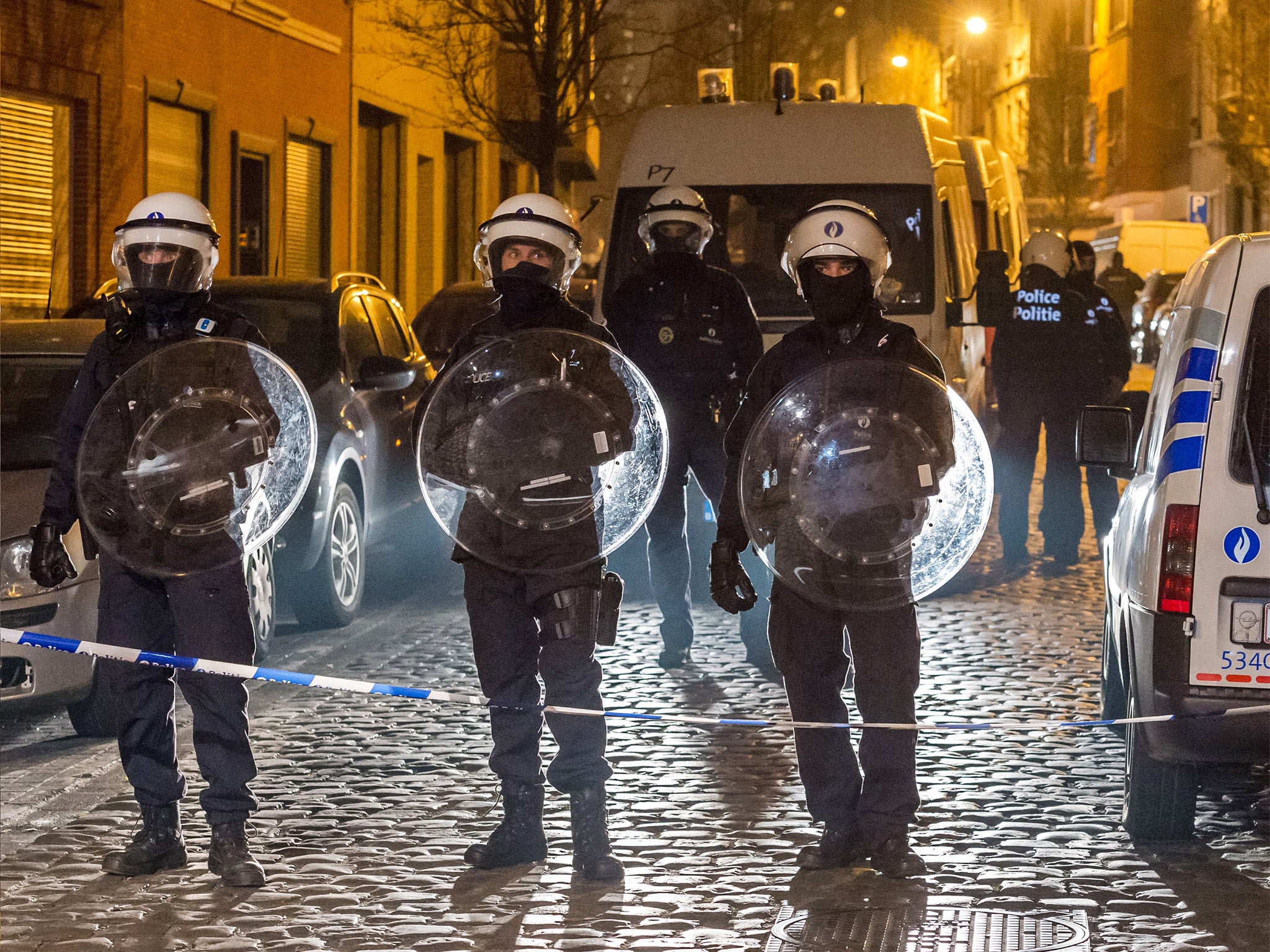Brussels attacks: How extremism flourished amid lack of integration in Molenbeek
Neglect appears to have allowed Salah Abdeslam to hide there for months

Your support helps us to tell the story
From reproductive rights to climate change to Big Tech, The Independent is on the ground when the story is developing. Whether it's investigating the financials of Elon Musk's pro-Trump PAC or producing our latest documentary, 'The A Word', which shines a light on the American women fighting for reproductive rights, we know how important it is to parse out the facts from the messaging.
At such a critical moment in US history, we need reporters on the ground. Your donation allows us to keep sending journalists to speak to both sides of the story.
The Independent is trusted by Americans across the entire political spectrum. And unlike many other quality news outlets, we choose not to lock Americans out of our reporting and analysis with paywalls. We believe quality journalism should be available to everyone, paid for by those who can afford it.
Your support makes all the difference.Almost no one from outside Molenbeek goes there unless they have to – least of all, members of the Belgian political establishment, some of whom seem embarrassed that such a poor, immigrant-heavy neighbourhood is actually part of the nation’s capital.
The west Brussels district that spawned the bombers and many of the Paris attackers is marginalised. with tightly packed social housing that is home to many unemployed young men, often the children or grandchildren of North African – mainly Moroccan – immigrants.
That neglect appears to have allowed Salah Abdeslam, a member of the Paris terrorist squad that killed 130 people, to hide there for months. His arrest last week was almost certainly the catalyst for the strike on 22 March.
His fingerprint was found in a flat rented by Khalid el Bakraoui who – despite being on an Interpol wanted terrorist list – was able to evade arrest long enough to carry out his deadly plans. A manhunt continues for Najim Laachraoui, another fugitive whose DNA was on explosive belts found at the sites of the Paris attacks, and is likely to have been the third man involved in the airport suicide attack on 22 March.
The problems highlighted in Molenbeek have led to tensions between Belgium and France – which was not alerted to the threat across its border – and prompted Britain to offer investigative expertise. “If you don’t work hard to make society as integrated as you can, it makes it easier for these groups to hide in plain sight,” said Kevin Hurley, a former head of counter-terrorism at the City of London Police.
At fault is a chronic under-investment and dysfunction within Belgium’s security apparatus. Brussels is not just the nation’s capital, but also hosts the EU institutions, Nato and other international bodies. Yet the state security service has a staff of only around 600. The former head of the Belgian intelligence agency said there was a shortfall of at least 100 officers.
The government responded to this shortage only in January last year, after the Charlie Hebdo attacks in Paris, when security services foiled a terrorist plot with a raid in the western town of Verviers.
“It was partly due to austerity,” said Rik Coolsaet, an expert in terrorism at the University of Ghent. “It was also due to the gap between the political and intelligence worlds: intelligence people did not have friends in politics, and politicians did not appreciate the need to keep track of new developments like foreign fighters.”
It was into this seam that terrorist groups spread. Salah Abdeslam, the would-be Paris attacker captured on 18 March, and his brother Brahim, who died at the Stade de France, were on a watchlist, but the services lacked follow-up capacity. Belgium failed to spot the Paris plotters in Molenbeek or to flag information about known radicals to France.

The Turkish President Recep Tayyip Erdogan claimed that one of the Brussels attackers had been caught in Turkey in June, but Belgium had failed to heed a warning he was a foreign fighter.
French politicians and media have been particularly critical of Belgium since November’s attacks in Paris. The failures also point to a wider malaise across Europe with implications for Britain, where counter-terrorism expertise threatens being undermined by failures elsewhere. Europol, the European policing agency, noted in January that the Paris attacks showed that the “exchange of information … needs improving.”
Assaf Moghadam, a professor at the Israel-based International Institute for Counter-Terrorism, said: “While people can travel freely across borders, there is little co-ordination between European intelligence services.”
Belgium has seen the highest proportion of jihadi fighters leaving for Syria and Iraq per head of the population of any country in Europe, with more than 450 travelling to fight. There is also wider dysfunction in the country, with complex and overlapping state structures: three regional governments and parliaments, plus a further three national parliaments, one for each language group including German. Brussels itself has six separate district police forces as well as federal police. The inherent tension between the French and Dutch-speaking halves can paralyse business.
Many problems come back to Molenbeek, a borough of 90,000. It is poor and badly integrated, with many disaffected young men easily lured into criminal gangs. Jihadists prey on local insecurities, promising that youngsters can redeem themselves as heroes fighting infidels in Syria. And the ineffective Belgian state seems both powerless and ignorant of what is going on, just a short distance from the heart of the government.
Join our commenting forum
Join thought-provoking conversations, follow other Independent readers and see their replies
Comments